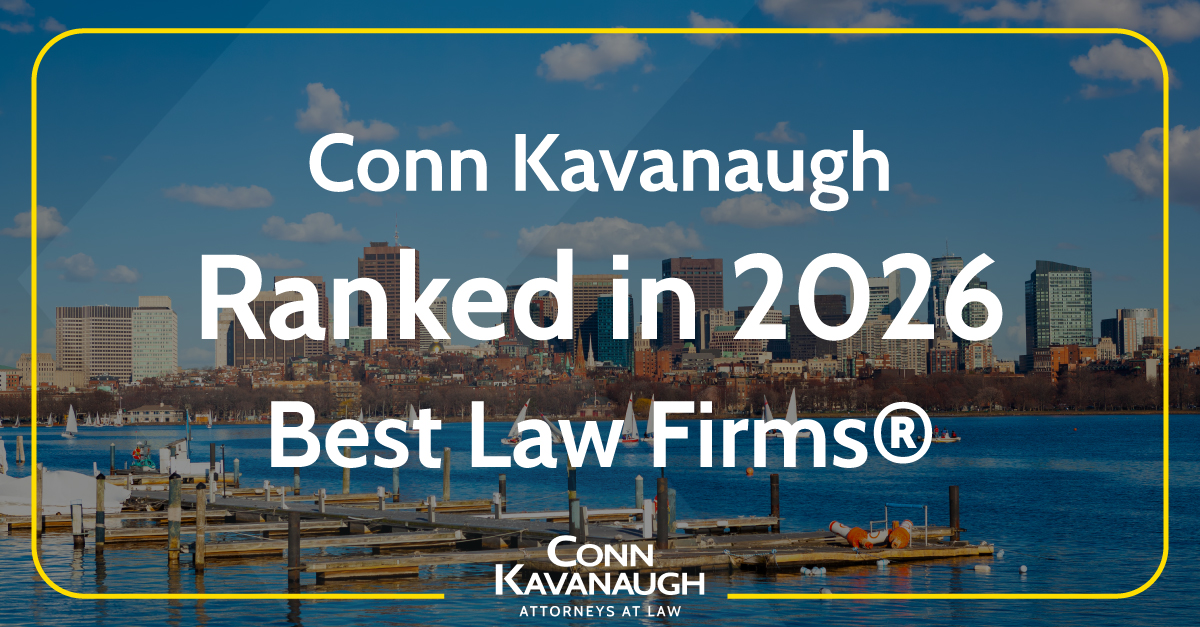The Department of Family and Medical Leave (“Department”) has published an unofficial version of amended regulations under the Paid Family Medical Leave Act, M.G.L. c. 175M. The original regulations, 458 CMR 2.00, went into effect on July 1, 2019. In May 2020, the Department released proposed amendments to the regulations and held a public comment period, as we reported. After accepting written comments and holding a virtual hearing on June 11, 2020, the Department has finalized the amendments. The amended regulations are expected to be published on July 24, 2020. The Department has released a redlined version of the draft regulations from May, a redlined version of the finalized regulations showing the changes from the May draft, and a clean version of the finalized regulations.
The following proposed amendments, which we covered in a prior post, have been incorporated into the finalized regulations.
- Internal Appeals Process for Private Plans. As a condition for an exemption, a private plan must provide for an internal appeals process before employees can exercise their right to appeal to the Department. Employees must have at least 10 days following receipt of a denial to appeal, and extensions must be given if circumstances beyond their control prevent a timely appeal. Notice must be given to employees of their rights to appeal to both the private plan and Department.
- Clarifications on Private Plan Exemptions. Employers cannot seek an exemption for only part of their workforce; the entire workforce must be covered under the plan. Employers may, however, seek an exemption for only medial leave benefits, only family leave benefits, or both. Private plans must calculate the weekly benefit amount based on earnings at the time of an application for benefits. If approved, employers will be exempt from both remitting contributions and filing quarterly reports. Exempt employers must notify the Department of any dissolutions, acquisitions, or mergers within 60 days.
- Narrowing of Retaliatory Presumption. The regulations currently provide for a presumption of retaliation if an employer implements any “negative change” in a worker’s employment in the six months following his or her leave or return to work. The following will not give rise to this presumption under the proposed amendments: (1) “trivial” or “subjectively perceived inconveniences”; and (2) notification to the Department of a bona fide belief that the employee has committed fraud in connection with an application for benefits. The proposed amendments also state that an employer’s application of a “pre-existing employment rule or policy” will be sufficient to overcome the presumption.
- Employers May Apply for Benefits. Employers may apply for benefits from the Department on behalf of their employees. Employers must first seek approval from the Department before doing so and agree to abide by all application requirements and timelines.
- Proof of Employer Notice. The Department will not accept any application for benefits that does not include proof that the employee provided the required notice to the employer – i.e., 30 days before the start of the leave, or as soon as practicable if a delay was beyond the employee’s control.
- Substitution of Employer-Provided Leave. Employees will not receive benefits for a period of time in which accrued paid leave provided by the employer was used.
The following new amendments and changes appear in the finalized regulations.
- Substance Use Disorder as a Serious Health Condition. Family or medical leave may be taken for treatment for a substance use disorder. The treatment must be from a health care provider or program that has been licensed or approved by the Massachusetts Department of Public Health. An employer cannot take adverse action against an employee because he or she has exercised the right to take leave for treatment of a substance abuse disorder. However, an employer may take adverse action against an employee, regardless of whether the employee is on leave, if: (1) the employer has an established policy that provides that an employee may be terminated for substance use; (2) the policy has been communicated to all employees; and (3) the policy is applied in a non-discriminatory manner. An employer cannot take adverse action against an employee who is caring for a family member that is receiving treatment for a substance abuse disorder because the employee has exercised the right to take such leave.
- Intermittent Leave. The draft amendments from May specified that intermittent leave must be taken in 15-minute intervals. The finalized regulations state, however, that intermittent leave may be taken “consistent with the established policy of the employer” in accounting for other forms of leave. The Department will not pay benefits in increments of less than 15 minutes.
- Former Employees. Former employees that (1) have been separated from their former employers for less than 26 weeks and (2) are unemployed when they apply for benefits will apply for benefits through their former employers. Former employees that (1) have been separated from their former employers for less than 26 weeks and (2) are employed by a different employer when they apply for benefits will apply for benefits through their current employers.
- Reductions of Benefits. The draft amendments from May stated that benefits would be reduced by any benefits received through a private plan and any wages received from other employers or self-employment (in addition to other sources of income). These provisions have been deleted in the finalized regulations. However, if an individual’s benefits exceed his or her average weekly wage, the Department may consider any wages received from other employers or self-employment (in addition to other sources of income) in deciding whether to reduce the benefits.
- Job Protection During Waiting Period. Employees are entitled to job protection during the 7-day waiting period when leave has commenced but benefits have not yet been paid.
- Telehealth. Treatment by a healthcare provider is defined to include a telehealth visit in addition to an in-person visit.
For more information on paid family and medical leave in Massachusetts, see our prior posts on the regulations, guidance, and other issues. Note that, although tax and other deadlines were extended in light of COVID-19 and the governor’s stay-at-home advisory, the deadlines for PFML compliance have not been extended. Contributions must still be remitted and reports must be filed for each calendar quarter on or before the last day of the month following the quarter’s close.
Employers with questions about the Act and how they should proceed should contact one of Conn Kavanaugh’s experienced employment lawyers.
Share with your network:




